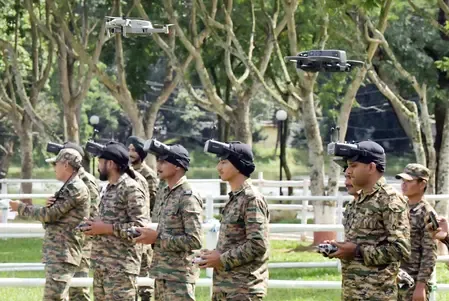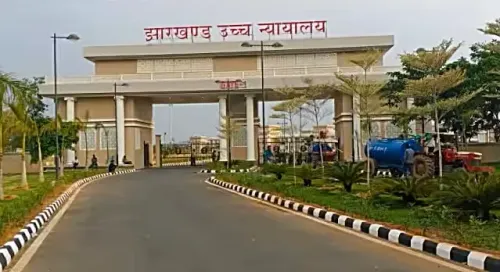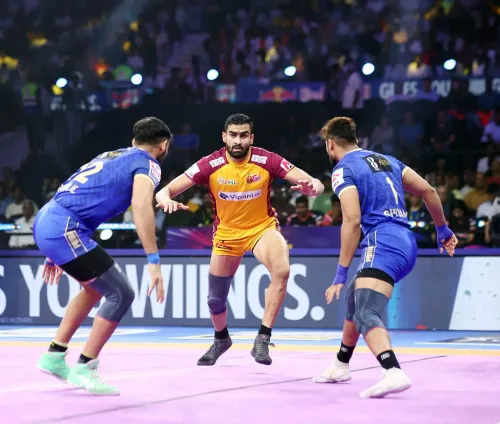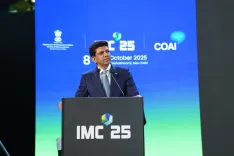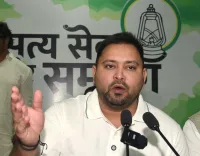Are Anti-War Protests Sweeping Major US Cities Following Strikes on Iranian Nuclear Sites?
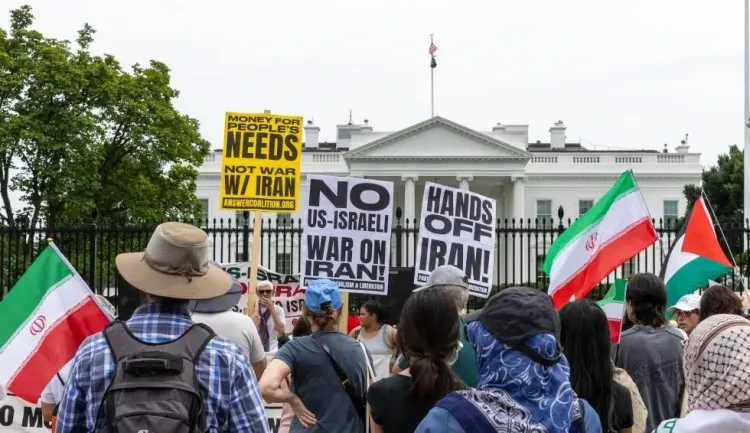
Synopsis
Key Takeaways
- Protests erupted in multiple US cities.
- Demonstrators oppose military action against Iran.
- Concerns about nuclear proliferation are prominent.
- Activists call for peace and diplomacy.
- Security measures were heightened in major cities.
Washington, June 23 (NationPress) Demonstrations erupted across multiple significant US cities, including New York, Boston, Chicago, Washington, and Los Angeles, in response to the airstrikes targeting Iran's nuclear facilities.
The protests on Sunday came after US President Donald Trump declared that the United States had conducted bombings at three nuclear sites in Iran, cautioning Tehran of potential further military action unless it ceased its hostilities with Israel.
The locations affected reportedly included the heavily fortified Fordow, Natanz, and Esfahan nuclear facilities.
More than 200 protestors, including several war veterans, assembled outside the gates of the White House in Washington, displaying banners that proclaimed “No War with Iran” in opposition to the Trump administration's military actions.
In New York, reports indicate that hundreds of protestors marched from Times Square to Columbus Circle, waving flags and carrying signs that read, “Stop the war in Iran,” “Hands off Iran,” and “No new war in the Middle East.”
Condemning the airstrikes, the protestors labeled the action an “act of war” rather than a diplomatic effort.
They expressed concern that such actions “would undermine the chances of an international treaty” aimed at limiting the spread of nuclear weapons, as reported by local media.
“I fear that we are on the brink of World War III, potentially nuclear. This isn't just Trump dropping a few bombs on Iran; Iran is a vast nation,” CBS News quoted protestor Yvette Felarca, a representative of By Any Means Necessary (BAMN), as stating.
“I find this incredibly dangerous. Trump's only policy seems to be war, which is extremely perilous,” she added.
“Notably, the Democrats, the party that claimed to be different from Trump, are not demanding he ‘end this war’. They are more focused on him dotting his I's and crossing his T's,” remarked Sean Blackmon, an organizer for the Party for Socialism and Liberation.
Earlier on Sunday, US authorities heightened security measures in response to the American-led military actions against Iranian nuclear sites, with key cities like New York and Washington increasing security around sensitive locations.


